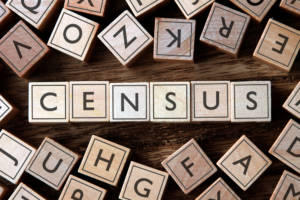The “second-generation” of Jews escaping Egyptian oppression needed assurances of their legitimacy. This message seems relevant to this generation as well, especially to the children and grandchildren of survivors.
By: Rabbi Ari Enkin, Rabbinic Director, United with Israel
This week’s Torah portion is Pinchas (Number 25:10-30:1), and in it we read about a census that was taken of the Jewish people. Indeed, this is the second census of the Book of Numbers, hence the name of this book of the Bible.
The findings of the census are reported in a somewhat peculiar manner. The names of the various families of each tribe are changed ever so slightly when the census is reported. For example, regarding the family of “Chanoch,” the Torah refers to them as “Hachanochi.” Those familiar with Hebrew will know that in order to get from “Chanoch” to “Hachanochi” one must add the letter ‘Hay’ at the beginning of the word and the letter ‘Yud’ at the end of the word. These two letters, Yud and Hay, make up the name of God. It emerges, therefore, that every family name was rewritten so that it was “surrounded” by the name of God.
The Midrash (rabbinic literature) addresses this change in the wording of the family names. It is taught that the nations of the world would taunt the Jews who believed that they were of pure lineage, saying it was impossible because, they claimed, when the Jews were slaves in Egypt, the Egyptian authorities would abuse the Jewish women and do with them as they pleased. There could be little doubt, they reasoned, that many Jews were born out of illegitimate relationships.
It actually sounds like a reasonable argument. Therefore, says the Midrash, this is precisely why God changed the wording of their family names. By attaching His name to the name of every Jewish family, God is essentially testifying and confirming that, contrary to what one might think, the people were of pure lineage and worthy of being in the “Congregation of God.” It is God confirming that the Jewish people are pure.

In this week’s Torah portion, a census was taken of the Jewish people. (Shutterstock)
But do these nations who taunted and accused the Jewish people of being impure and of defiled lineage really care what the Midrash says? Do anti-Semites consult with Jewish texts and literature in order to confirm their anti-Semitic theories? Of course not! So who exactly is God trying to impress by changing the names of the families? So, too, why is it only here, in this census, that the names of the families are changed to testify to their purity? Why was the same thing not done in the first census taken many years ago, at the beginning of the Book of Numbers?
The answer to all these questions is that, as always, it makes no difference what the anti-Semites of the world think of us. It does not matter what they think of our lineage, our state, or our success. The Torah is not trying to influence anti-Semites; the Torah is trying to influence the Jews! The Torah rewrote the names of the families so that we can be assured that we are all pure and legitimate.
As to why this was not done following the first census, it is explained that there was essentially no need to do so. That first census took place shortly after the Exodus from Egypt. Had the nations of the world harassed those “first generation” Jews who had just come out of Egypt and who clearly remembered all that took place in Egypt, telling them “your wives and mothers were unfaithful,” they would have been dismissed outright.
This census, however, took place 40 years later. The “first generation” had all passed on. The new generation had no firsthand knowledge of what went on in Egypt and may not have been confident in denying these claims. They may have even believed them. As such, it was only now that some reassurance was needed, which is why God attached His name to the families when He did.
For more insights by Rabbi Ari Enkin on this week’s Torah portion, click on the links below:
https://unitedwithisrael.org/living-torah-loving-the-holy-land-of-israel/
https://unitedwithisrael.org/keep-torah-observance-exciting-not-mundane/
